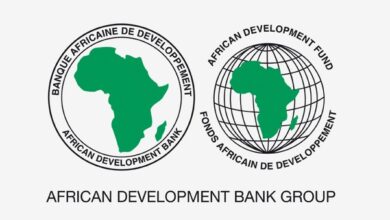EU to donate €1.5b for global humanitarian crises in 2022

The European Union (EU) on Tuesday announced a contribution of the sum of 1.5 billion euros to combat humanitarian crises across the globe in 2022.
The EU disclosed this in a statement issued by its commission on Tuesday, in Abuja.
According to the statement, the bloc which is at the forefront of global humanitarian response, has contributed the sum of 1.5 billion euros for 2022 global humanitarian crises, as conflicts continue to rise.
“While conflicts and violence are the source of major humanitarian needs, the situation is increasingly being worsened by natural disasters such as drought or floods.
“Fueled by climate change and environmental degradation, and to help those most affected worldwide, the Commission has adopted its initial annual humanitarian budget of 1.5 billion euros for 2022.”
The statement also quoted the Commissioner for Crisis Management, Janez Lenarčič as saying that: “Humanitarian needs are at an all-time high and continue to grow.
“This is mostly due to conflicts, but increasingly due to global challenges like climate change and COVID-19.
“Our humanitarian funding will allow the EU to do its part by continually saving lives and covering the basic needs of affected populations.
“Next to responding to new and highly visible crises, the budget ensures that we do not detract from addressing existing, protracted or recurrent humanitarian crises such as in Colombia or South Sudan, or the situation of the Rohingya people.”
In a breakdown of the allocation, the EU said 469 million euros would be allocated to Sub-Saharan Africa to support those suffering from food and nutrition crisis, exacerbated by conflicts in the Sahel countries such as Burkina Faso, Mali, Mauritania, and Niger.
Those displaced by violence in the Central African Republic, the Lake Chad basin (Chad, Cameroon and Nigeria), South Sudan and Horn of Africa (Djibouti, Ethiopia, Kenya and Ethiopia), and also people affected by long-term conflict in the Democratic Republic of Congo, were part of those to benefit from 469 million euros.
“Then, 351 million euros will be allocated to the Middle East and North Africa to address the crisis in Syria and the needs of refugees in neighbouring countries in the Middle East, as well as the critical situation in Yemen.
“Furthermore, 152 million euros will fund projects in Southeast Europe and the European Neighbourhood addressing crises in Ukraine, Western Balkans and the Caucasus, as well as the effects of the Syria crisis in Turkey.
The EU said 188 million euros was earmarked to help the most vulnerable populations in Asia and Latin America, with Afghanistan and Rohingya crises, and Bangladesh and Myanamar taking the share of Asia.
READ ALSO:https://brandeconomy.com.ng/insecurity-after-4-months-closure-zamfara-schools-resume-jan-17/
“In Latin America, the EU will continue to provide help to those affected by the crises in Venezuela and Colombia, as well as in Haiti.
“Then lastly, the remaining 370 million euros would be used for unanticipated crises or sudden peaks in existing crises, as well as other operations.
“Funding will also help vulnerable populations in disaster-prone countries to prepare better for various natural hazards such as floods, forest fires, earthquakes and cyclones.
“Ten per cent of the funding across all regions will be allocated to education in emergencies, to allow children and youth to continue their schooling,” it stated.
The News Agency of Nigeria (NAN), also reports that in 2021, the European Commission released a proposal to strengthen the EU’s global humanitarian impact, in order to meet the substantially rising humanitarian needs, exacerbated by the COVID-19 pandemic.
(NAN)












